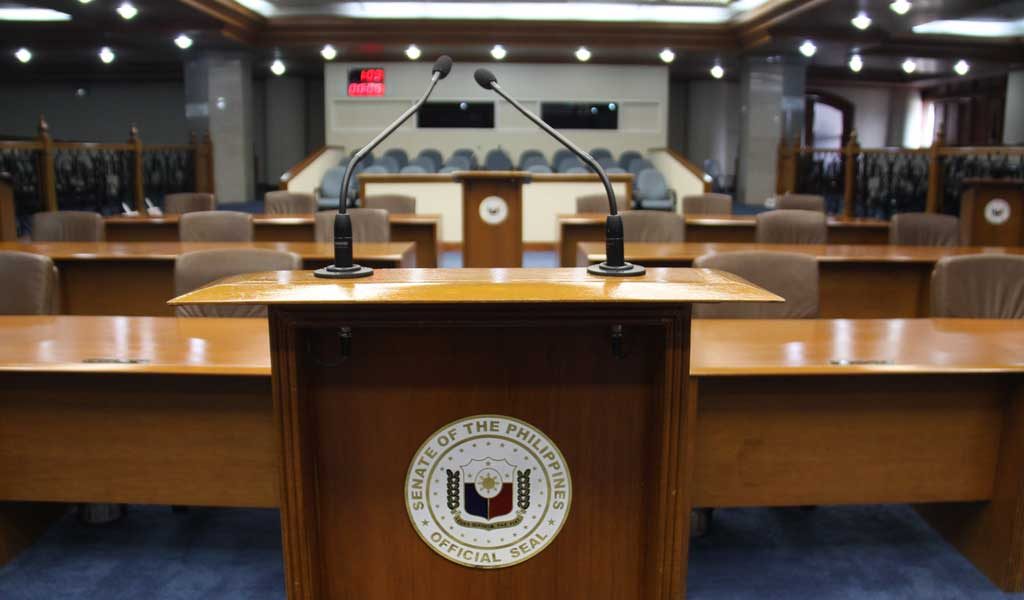By Alyssa Nicole O. Tan
THE SENATE aims to approve its version of the 2022 General Appropriations Act (GAA) by the end of November, the chamber’s President, Senator Vicente C. Sotto III, said.
In a Viber message to BusinessWorld, he said discussions will start on Nov. 6, the goal is to approve the P5.024-trillion budget in the same month, with Dec. 1 seen as the latest possible date to pass the chamber’s budget bill.
The House on Sept. 30 approved with no abstentions its version of the 2022 GAA or House Bill 10153 on third and final reading, which will be transmitted to the Senate on Oct. 27.
Amid budget hearings for individual agencies in the Senate, Senator Juan Edgardo M. Angara, who chairs the chamber’s finance committee, said that the pandemic response will be given the highest priority.
“Funds are very tight this year because as noted by our colleagues during the DBCC (Development Budget Coordination Committee), it seemed like the budget submitted by the DBM (Department of Budget and Management) was not for COVID,” he said in an earlier statement, noting that the proposal did not include funds for contact tracing, booster shots, the testing of minors, and benefits for healthcare workers.
While the Senate will work hard to meet the various requests from the agencies for more funding, the bias will be weighted towards strengthening the pandemic containment effort, Mr. Angara added.
“Self-preservation is the ultimate goal of any individual or society. So, let’s preserve ourselves first and then we can go pursue more lofty goals,” he said.
The budget department has said that the lack of allocations to deal with the coronavirus 2019 (COVID-19) was due to the preparation of the budget proposals before the emergence of the more contagious Delta variant.
Sen. Emmanuel Joel J. Villanueva, vice-chairman of the finance committee, told BusinessWorld via Viber that he will pursue measures to ease joblessness and upgrade worker productivity.
He wanted to ensure that the National Employment Recovery Strategy program “hits its target of generating 1.22 million jobs for our workers.”
“We’re also looking at sufficient funding for programs, such as the Tulong Trabaho Scholarship program, that would help retool and upskill our workers to make them employable,” Mr. Villanueva added.
Sen. Sherwin T. Gatchalian, also a finance vice-chairman, noted plans to provide a 94% budget hike to the education department to enhance its computerization program in 2022.
“However, the education department should ensure that funds are properly used to procure and provide computers for the public schools,” he said in a statement Saturday.
“Looking at the past experience of the department in terms of dispensing the budget on computerization, I’ve noted that it has some issues in terms of obligations and disbursement,” Mr. Gatchalian, who chairs the Senate Committee on Basic Education, Arts and Culture, added, noting the need to pay thorough attention to suppliers after recurrent supplier issues in previous years.
He is also filing a bill that will accelerate the digital transformation of the education sector.
Meanwhile, Sen. Panfilo M. Lacson, also a vice-chairman of the finance committee, earlier this month noted that large portions of the budget were wasted.
According to Mr. Lacson, who is running for president, budget ceilings imposed by the DBCC also often neglect the needs of smaller communities in putting together National Expenditure Program.
“We have observed that for so many years — and I am driven (to address this concern) because year-in, year-out, I like to go over and scrutinize the national budget — a lot of money is being wasted under the General Appropriations Act,” he said in a statement.
He said that he planned to adopt a zero-based budgeting system to give government agencies more flexibility when spending taxpayers’ money.
Zero-based budgeting requires all expenses to be justified for each new fiscal period, similar to the private sector approach to budgeting, he said.
“This is to avoid future incidents of wasting public funds because of unused appropriations, or underspending that could reach to over P400 billion, because most agencies under the executive branch have been operating with a budget ceiling,” he added.
Mr. Lacson said he will encourage more citizens through their barangay officials to participate in their local development councils, all the way to the regional chapters of the DBCC, to propose useful projects that can be included in the national budget.
He hopes this approach will make the process more organized and minimize unauthorized budget insertions, which have delayed the preparation of past budgets.
